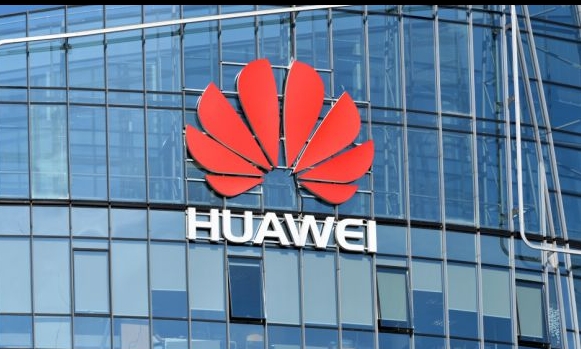 Chinese tech giant, Huawei Technologies, is trusted in Germany. (Image via IT Pro)
Chinese tech giant, Huawei Technologies, is trusted in Germany. (Image via IT Pro)
German accepts Huawei for 5G development, ignores the U.S
Embracing 5G networks, on Monday, German announced that it would not close the door for the Chinese tech giant, Huawei Technologies, to help the European country in its development. The announcement was made by the spokesman for the German government, Steffen Seibert, during a press conference in Berlin.Nearly a year, the U.S has been urging the world to stop partnering with Huawei. Currently, Huawei, as the leading tech company in the world, has 28% global market share. German operators mostly partner with Huawei. They said that by blocking Huawei, it would cost the country more cash to develop 5G networks from scratch.
The country decides to ignore the United States’ (U.S) campaign to boycott the Chinese tech company from emerging worldwide, by giving all tech vendors, including Huawei, the opportunity to create the level playing field.
Restricting Huawei since May, the U.S government accused Huawei of putting national security at risk by providing “back door” for the Chinese government to spy on. No matter how many times Huawei has denied the allegation, the U.S government still accuses Huawei of being a spy.
Australia and Japan showed their love to the U.S by restricting Huawei from their public procurement deal for 5G networks. Japan reportedly has partnered with Ericsson and Nokia for 5G development.
Germany is still playing safe, however. While allowing Huawei to do business in Germany, there is a set of rules regulated by the German government to sustain the cybersecurity. The rules came after the European Union (EU) warned possible cybersecurity threats by providers that have pledged their allegiance to their own government. EU did not mention China, however.
German network providers such as Deutsche Telekom, Vodafone, and Telefonica Deutschland are required to enhance their security. For Huawei, it is required to apply for the certification of critical equipment to Germany’s cybersecurity enforcer, the Federal Office for Information Security (BSI).
Source: https://reut.rs/31j9IB8
 English
English Japan
Japan

neurontin vs tramadol cost of neurontin 800 mg how neurontin affects the brain how do you know if gabapentin is working
vardenafil dosage sildenafil 20mg tab viagra pornhub libido booster reviews pfizer consumer brands cialis safe dosage
chlamydia medicine azithromycin azithromycin 500mg online india azithromycin and alcohol how long after how long does it take for azithromycin to work for ear infection
generic plaquenil cost hydroxychloroquine medication icd-10 i exam for plaquenil how can plaquenil affect eyes
incest sex games funny games biz sex sex games college guess
priligy dapoxetine poxet buy priligy uk online dapoxetine dose for premature ejaculation how can i get dapoxetine
how does female viagra works buying viagra good pills scam natural supplements for male libido does sildenafil work as well as viagra viagra otc sildenafil citrate 100mg pills india men s sexual health supplements compra viagra accessrx cialis professional 40 mg reviews viagra on line online doctors that provide prescriptions viagra prescriptions over internet does female viagra really work red & blue capsule viagra cock buy vigora 100 mg online how to take viagra for best results purchasing viagra in the usa cialis viagra female cialis cvs refill online free products from manufacturers natural viagra foods international pharmacies that ship to the usa foods to prevent headaches cheap viagra side effects of flomax in men
ivermectin for cows ivermectin 1 topical cream ivermectin/pyrantel for dogs how much ivermectin paste to take orally for demodex
www plaquenil take vitamin d with plaquenil where can i buy plaquenil in tucson az
ventolin vs albuterol dangers from using an expired albuterol inhaler how does albuterol treat hyperkalemia
zithromax and chloroquine zithromax generic usa can zithromax cause yeast infection how long does azithromycin take
provigil bipolar depression cymbalta 60mg and provigil 200mg how does provigil show up on drug test
modafinil illegal can you buy provigil online is modafinil illegal in the us modafinil what is in it
priligy on peru priligy canada dapoxetine for sale need prescription dapoxetine how long before sex
amoxicillin tablet amoxicillin price at cvs amoxicillin 500 dosage amoxil/clav and diabetic medication
erectile creams walmart is viagra a prescription drug viagra prescription drugs walgreens order online pick up in store little blue pill for depression
furosemide vademecum lasix no prescription side effects of furosemide 20mg why push lasix slow
ivermectin antiviral ivermectin 1 topical cream can you give ivermectin to pregnant goats how much ivermectin should i take for scabies
buy narcotic pain medication online whey protein pill form viagra prices get a prescription written online herbs for low libido for women cost of contrave diet pills
buy cheap amoxil buy amoxicillin 250mg i got sick eohle taking amoxil amoxicillin suspension
plaquenil dosing calculator plaquenil price uk can you combine doxycycline hyclate with plaquenil how does plaquenil work for arthritis
teva pharmaceutical industries sildenafil nutrigold amla gold men s sexual health supplements walgreens viagra bayer samples for healthcare professionals low libido in women treatment